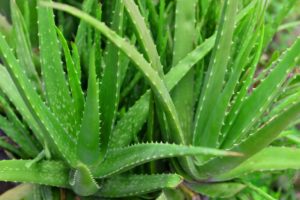
Natural remedies have been used for centuries to treat various common ailments. While they’re not always a replacement for professional medical treatment, they can offer benefits for mild conditions and promote overall wellness. Here’s an overview of some popular natural remedies and their potential benefits:
1. Ginger for Nausea and Digestive Issues
- Benefits: Ginger has natural anti-inflammatory properties and can help soothe an upset stomach, alleviate nausea, and improve digestion. It’s commonly used for motion sickness, morning sickness, and indigestion.
2. Honey for Cough and Sore Throat
- Benefits: Honey has antibacterial and anti-inflammatory properties. It can soothe the throat, reduce coughing, and promote healing. It’s often used in teas for soothing the throat and boosting the immune system.
3. Peppermint for Headaches and Digestive Health
- Benefits: Peppermint oil has menthol, which can help relieve headaches when applied to the temples. It also supports digestion by relieving bloating, indigestion, and gas.
4. Lavender for Stress and Anxiety
- Benefits: Lavender is known for its calming properties. It can help reduce stress, anxiety, and even improve sleep. It can be used in aromatherapy, teas, or applied topically as an oil.
5. Turmeric for Inflammation and Joint Pain
- Benefits: Turmeric contains curcumin, a compound known for its anti-inflammatory and antioxidant effects. It may help relieve joint pain, reduce inflammation, and improve overall mobility in conditions like arthritis.
6. Echinacea for Cold and Flu
- Benefits: Echinacea is often used to boost the immune system and may reduce the duration and severity of cold symptoms. It’s typically consumed as a tea, supplement, or tincture.
7. Chamomile for Sleep and Anxiety
- Benefits: Chamomile is known for its sedative properties and can help with insomnia, anxiety, and digestive problems. It’s commonly consumed as a tea before bedtime to promote relaxation.
8. Aloe Vera for Skin Irritations
- Benefits: Aloe vera gel has cooling, moisturizing, and anti-inflammatory properties. It’s frequently used to treat sunburn, minor cuts, and skin irritations, and it can help speed up the healing process.
9. Apple Cider Vinegar for Digestion and Blood Sugar Control
- Benefits: Apple cider vinegar may help improve digestion by increasing stomach acid production and can also help regulate blood sugar levels. It’s often diluted in water and consumed before meals.
10. Garlic for Immune Support and Heart Health
- Benefits: Garlic has antimicrobial, antiviral, and anti-inflammatory properties. It’s believed to boost the immune system, lower blood pressure, and support heart health.
11. Cinnamon for Blood Sugar Control and Antioxidant Benefits
- Benefits: Cinnamon is rich in antioxidants and may help lower blood sugar levels, reduce inflammation, and support brain health. It’s commonly added to food or consumed as a tea.
While natural remedies can be effective for many people, it’s important to remember that they should complement, not replace, medical treatment, especially for serious conditions. Always check with a healthcare provider before trying a new remedy, especially if you have underlying health issues or are taking medications.
1. Cold and Flu
- Honey and Ginger Tea: A mixture of honey and ginger in warm water helps soothe the throat and boost immunity.
- Garlic: Known for its antiviral and antibacterial properties, garlic can help fight infections.
- Elderberry Syrup: This is a traditional remedy that enhances the immune system and shortens the duration of colds.
- Steam Inhalation: Adding eucalyptus oil to hot water and inhaling the steam clears nasal congestion.
2. Headaches and Migraines
- Peppermint Oil: Applying peppermint oil to the temples can relieve tension headaches.
- Ginger Tea: Reduces inflammation and helps with nausea associated with migraines.
- Magnesium: Consuming magnesium-rich foods like almonds, spinach, and bananas can prevent headaches.
- Hydration: Dehydration is a common cause of headaches; drinking plenty of water helps prevent them.
3. Indigestion and Bloating
- Fennel Seeds: Chewing fennel seeds or drinking fennel tea aids digestion.
- Apple Cider Vinegar: A teaspoon in warm water before meals helps digestion and reduces bloating.
- Ginger: Improves digestion and relieves nausea.
- Chamomile Tea: Calms the stomach and reduces bloating.
4. Sore Throat
- Saltwater Gargle: Helps kill bacteria and soothes the throat.
- Honey and Lemon: A natural cough suppressant that soothes irritation.
- Marshmallow Root Tea: Has mucilage that coats and relieves the throat.
- Turmeric Milk: Contains anti-inflammatory properties that help heal the throat.
5. Skin Irritations and Acne
- Aloe Vera Gel: Soothes burns, rashes, and acne.
- Tea Tree Oil: Has antibacterial properties that help reduce acne and inflammation.
- Oatmeal Bath: Relieves itching and skin irritation.
- Coconut Oil: Moisturizes and soothes dry, irritated skin.
6. Insomnia and Sleep Disorders
- Chamomile Tea: Promotes relaxation and sleep.
- Lavender Oil: Diffusing or applying lavender oil helps reduce stress and induces sleep.
- Warm Milk: Contains tryptophan, which promotes sleep.
- Magnesium Supplements: Helps relax muscles and improve sleep quality.
7. Joint Pain and Arthritis
- Turmeric and Black Pepper: Contains curcumin, which has anti-inflammatory effects.
- Epsom Salt Bath: Relieves muscle pain and joint stiffness.
- Omega-3 Fatty Acids: Found in fish oil, flaxseeds, and walnuts, reduces inflammation.
- Ginger: Works as a natural pain reliever.
8. High Blood Pressure
- Garlic: Helps lower blood pressure naturally.
- Hibiscus Tea: Has been shown to reduce blood pressure levels.
- Potassium-Rich Foods: Bananas, sweet potatoes, and spinach help regulate blood pressure.
- Exercise and Meditation: Regular activity and stress management can help keep blood pressure in check.
9. Stress and Anxiety
- Ashwagandha: An adaptogen that helps the body handle stress.
- Lemon Balm Tea: Reduces anxiety and promotes relaxation.
- Deep Breathing Exercises: Activates the relaxation response in the body.
- Yoga and Meditation: Helps reduce cortisol levels and promote mental clarity.
10. Menstrual Cramps
- Ginger Tea: Relieves pain and inflammation.
- Cinnamon: Reduces menstrual pain and discomfort.
- Heating Pad: Helps relax muscles and ease cramping.
- Magnesium-Rich Foods: Dark chocolate, nuts, and leafy greens help alleviate cramps.
11. Allergies and Sinus Issues
- Neti Pot: Rinses out allergens and mucus from the nasal passages.
- Quercetin: A natural antihistamine found in apples, onions, and berries.
- Local Honey: Consuming local honey may help build immunity to local pollen.
- Steam Inhalation with Peppermint Oil: Clears nasal passages and reduces sinus pressure.
12. Constipation
- Psyllium Husk: A natural fiber supplement that promotes regular bowel movements.

- Prunes or Prune Juice: Contains sorbitol, which acts as a natural laxative.
- Hydration: Drinking plenty of water helps soften stool.
- Flaxseeds: High in fiber and omega-3 fatty acids, aiding digestion.
13. Nausea and Motion Sickness
- Ginger: Chewing ginger or drinking ginger tea alleviates nausea.
- Peppermint Tea: Soothes the stomach and reduces feelings of nausea.
- Lemon: The scent of lemon can reduce nausea symptoms.
- Acupressure: Applying pressure to the P6 point on the wrist can relieve nausea.
14. Urinary Tract Infections (UTIs)
- Cranberry Juice: Prevents bacteria from adhering to the urinary tract walls.
- D-Mannose: A sugar found in cranberries that helps flush out bacteria.
- Hydration: Drinking plenty of water helps eliminate bacteria.
- Probiotics: Maintains healthy bacteria in the urinary tract.
15. Hair Loss and Dandruff
- Coconut Oil and Lemon Juice: Moisturizes the scalp and fights dandruff.
- Aloe Vera: Promotes hair growth and soothes the scalp.
- Rosemary Oil: Stimulates hair follicles and prevents hair loss.
- Apple Cider Vinegar: Balances scalp pH and reduces dandruff.

These natural remedies have been used for centuries to alleviate common ailments and promote overall well-being. Always consult a healthcare professional before trying any new remedy, especially if you have underlying health conditions.



 DailyMediCure
DailyMediCure 










d3wz8h